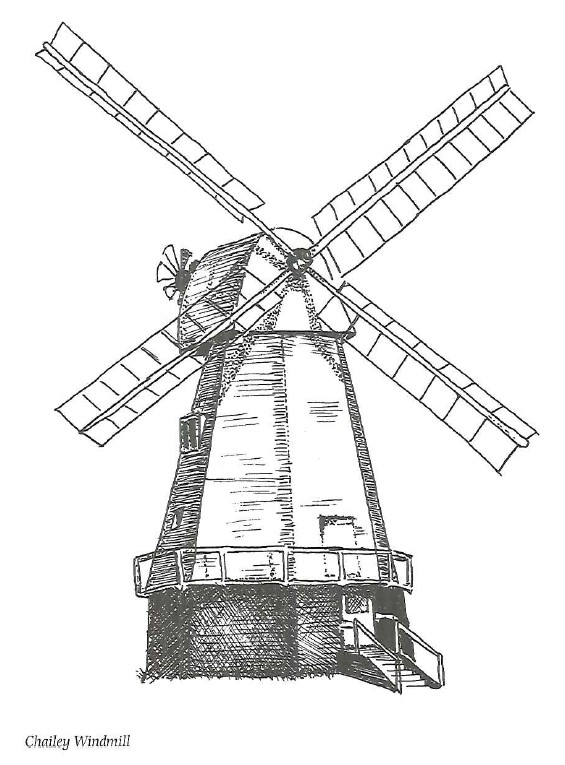Buried here is one of the great characters of the Ashdown Forest of 100 years ago. Edwin Russell was described as a ‘harmless imbecile’, said to have well-heeled relations who had disowned him (perhaps they took exception to the fact he popped granny’s kitten into the boiling dinner pot).
He lived a wandering life around the forest villages and, though nobody would permit him into their home, people were willing to give him bits to eat. Edwin used to wear a top hat generally trimmed with feathers or coloured paper, had medals stuck on his coat and was pleased with any sort of bright coloured decoration. He carried his worldly possessions in a kettle and would sleep anywhere. He lay for weeks in an old pigsty which he managed to make so filthy that the owner turned him out, and was ousted from a wheelbarrow in an open-sided shed because he would sing in the night to the accompaniment of his battered accordion.
He liked to take off his clothes and pile them on his head so it is not surprising that he lost several toes to frostbite in the 1890s. After that well-wishers made sure he spent the winters at the Uckfield Workhouse Infirmary, a place he called ‘the fatting coop’.
*House sheep’, kept by cottagers principally for ewe milk, were 300 years ago as commonplace as the “house cow’ and later the house pig’. As herds of dairy cattle were built up, so sheep rearing turned more towards the production of meat and wool.
Here farmer Mark Hardy has successfully turned back the clock and pioneered the reintroduction of sheep milk to Britain. The product of his mixed herd of Sussex High Weald Dairy Sheep is pure white, rich in calcium and protein, naturally Sweet and without the ‘taint’ associated with goat milk.
It is a business far removed from the old-time ways of earning a crust in this village on the edge of Ashdown Forest. There were ironworks here from Roman times, then charcoal burning, hop growing and nursery gardening on land reclaimed from the forest enjoyed boom days. There is still a living to be made from the forest today in the form of Christmas wreaths for which there is an abundance of natural materials.
Fords are a rarity these days. Fairwarp has one and is proud of it. So much so that when East Sussex County Council channelled the water to run under the road there was such an outcry among the locals that council workmen had to come back and restore the stream to its original course across the lane.
Brooding over the forest uplands at Duddleswell are the radio masts of the Foreign Office’s diplomatic wireless service station by which London stays in touch with Britain’s embassies around the globe. A series of mounds found here puzzled archaeologists until it was established that they were part of the field kitchens that served the 12 army regiments camped here in 1793. Nature reserves do not come much smaller than that established in the village in 1981. The attractive spread of a mere 8% acres is under the care of a volunteer warden.
Every year the local youngsters smarten up their rabbits, cats and dogs and take them along to the village hall for the annual pet show. The rules are strict though: no snakes and no pet larger than a goat.
